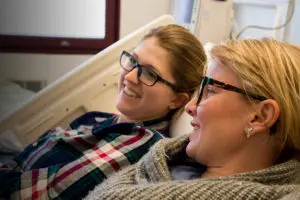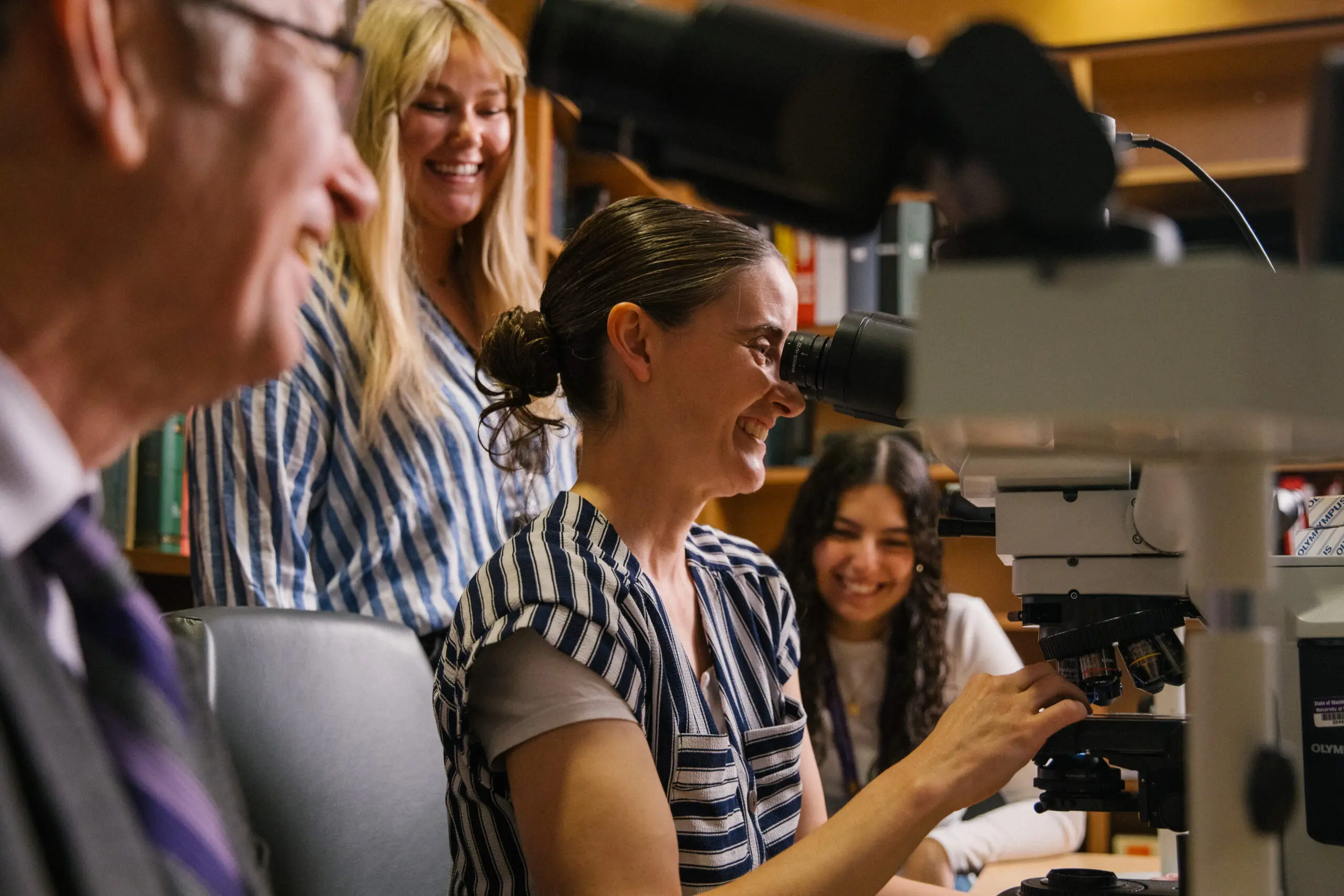Putting patients first is a mantra shared by employees across the UW Medicine health system.
As an embedded part of the work culture, clinical staff are continually seeing new opportunities to improve care and outcomes for their patients.
“Innovation is UW Medicine’s secret sauce and what makes us unique,” says Lisa Brandenburg, president, UW Medicine Hospitals & Clinics. “The people doing the work know the most about how to improve the work.”
But, Brandenburg says, there are funding gaps in applying some of these innovations to the patient experience. Now, generous support from forward-looking donors Christine and Jordan Kaplan is helping clinical teams implement their biggest, boldest ideas.
The UW Medicine Patients Are First Innovation Pilots (PAFIP) launched in 2020, with funding from the Kaplans and matching funds. Soon to announce its second round of grants, PAFIP taps into the knowledge of UW Medicine faculty and staff for solutions to drive better patient care and then provides grants for them to implement their ideas.
“UW Medicine has greatly impressed us,” says Jordan Kaplan. “Its innovative programs support not only the university but the entire Seattle community.”
While the UW system has many built-in approaches to foster structured improvements daily, Brandenburg notes this pilot program is unique because it focuses on projects that rise above the day-to-day, requiring multidisciplinary collaboration and additional funding.
The first request for proposals generated a much larger response than expected: Nearly 100 ideas were submitted. Then came the tough job of selecting and funding two.
Increasing Equity in Breast Cancer Screening
The idea for one of the projects selected, a human-centered design approach to eliminating breast cancer disparities, predated the pilot program but lacked funding. Led by Victoria Fang, MD, associate medical director at UW Neighborhood Clinics, the project sought to address the inequities in a healthcare system where Black women receive fewer and poorer-quality screenings for breast cancer. As a result, they are at a disproportionate risk of dying from the disease compared to non-Hispanic white women.
The proposal was a perfect fit for PAFIP because it sought collaborators who brought new perspectives. Specifically, the program developed an online chatbot prototype to facilitate breast cancer screening, with input from Black women.
A crucial component of the project’s success was collaborator Bridgette Hempstead, founder of Cierra Sisters, an advocacy organization supporting Black women living with breast cancer. Hempstead conducted 21 interviews with Black women living in King and Pierce counties. In addition, the project included UW Primary Care staff, breast cancer specialists, the Office of Healthcare Equity, the UW Department of Human Centered Design & Engineering, the Division of General Internal Medicine and the Division of Hematology.
Using Hempstead’s interviews to understand screening barriers and get feedback on the prototype, the team created a chatbot to help the UW system more proactively and effectively engage with Black women patients to reduce their risk of breast cancer. The program is now seeking additional funding to further refine the prototype.
“This work has the potential to help us improve access to other cancer screenings and make significant progress in health equity at UW Medicine,” says Brandenburg.


